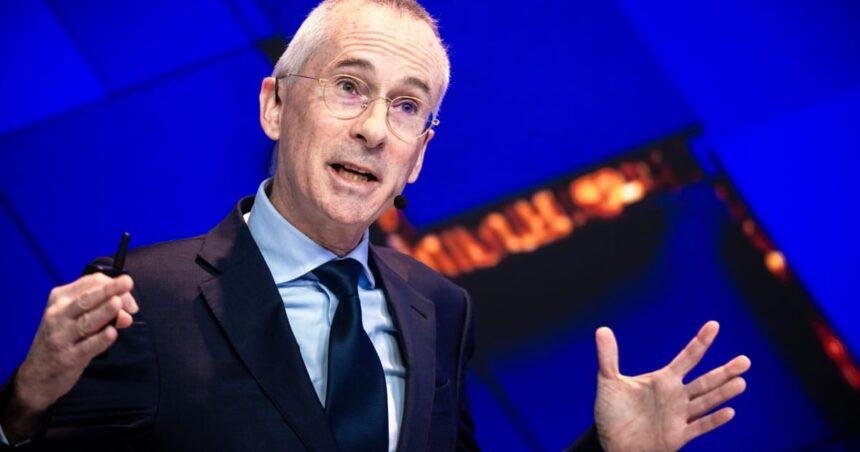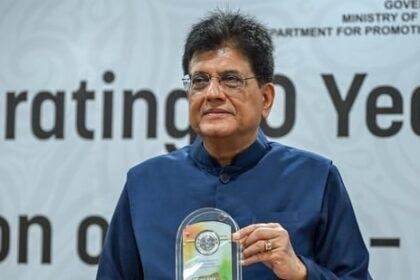ASML Executive Critiques EU’s AI Regulations Amid Geopolitical Tensions
In a recent campaign event for the Dutch center-right party Christian Democratic Appeal, ASML’s Chief Financial Officer Roger Dassen voiced strong concerns regarding the European Union’s approach to artificial intelligence (AI) regulation. His remarks come as the EU grapples with the implementation of its ambitious AI law, which has faced criticism from various sectors, particularly the tech industry. The national elections scheduled for October 29 have intensified discussions around these regulatory frameworks.
ASML’s Position on AI Regulation
ASML, recognized as Europe’s leading technology firm by market capitalization, has been at the forefront of advocating for a pause on certain aspects of the EU’s AI legislation. In July, Dassen and other executives from 46 companies signed a letter urging a two-year moratorium on parts of the law that have yet to be enacted. This collective call reflects a growing unease within the tech community about the potential implications of stringent regulations on innovation and competitiveness.
The EU’s AI law aims to establish a comprehensive framework for the development and deployment of AI technologies, focusing on ethical considerations and safety. However, critics argue that the regulations could stifle innovation and hinder the growth of European tech companies in an increasingly competitive global landscape.
Strategic Investments and Influence
In a significant move to bolster its influence in the AI sector, ASML recently became the largest shareholder in the French AI company Mistral, investing €1.3 billion. This investment not only enhances ASML’s portfolio but also positions the company as a key player in shaping the future of AI in Europe. By acquiring a stake in Mistral, ASML aims to leverage its technological expertise and resources to navigate the complex regulatory environment.
Dassen’s comments highlight a broader concern among European tech giants regarding the lack of adequate protection in the face of geopolitical challenges. He pointedly questioned whether companies like Airbus, Nokia, and ASML feel sufficiently safeguarded by European policies amid the ongoing power struggle between the United States and China. “The answer won’t always be yes,” he stated, underscoring the precarious position of European firms in the global market.
Historical Context of EU Regulations
The EU’s approach to regulating technology is not new. Historically, the region has sought to establish itself as a leader in ethical standards and consumer protection. The General Data Protection Regulation (GDPR), implemented in 2018, serves as a prime example of the EU’s commitment to safeguarding individual rights in the digital age. However, the complexities and challenges associated with enforcing such regulations have raised questions about their effectiveness and impact on innovation.
As the EU embarks on regulating AI, it faces the dual challenge of fostering innovation while ensuring ethical standards. The rapid pace of technological advancement necessitates a regulatory framework that is both flexible and robust. Critics argue that overly stringent regulations could drive talent and investment away from Europe, further exacerbating the continent’s technological lag behind the United States and China.
The Geopolitical Landscape
The geopolitical landscape has become increasingly complex, with the U.S. and China vying for dominance in technology and innovation. The U.S. has made significant strides in AI development, supported by a robust venture capital ecosystem and a culture that encourages risk-taking. In contrast, China’s aggressive investment in AI and technology infrastructure poses a formidable challenge to European firms.
Dassen’s remarks resonate with a growing sentiment among European leaders and business executives who fear that the continent may be left behind in the global race for technological supremacy. The need for a cohesive strategy that balances regulation with innovation has never been more pressing.
Conclusion
As the EU prepares for national elections and continues to refine its AI regulations, the concerns raised by ASML’s Roger Dassen reflect a broader dialogue about the future of technology in Europe. The balance between ethical oversight and fostering innovation is delicate, and the stakes are high. With significant investments in AI and a commitment to shaping the regulatory landscape, ASML and other European tech companies are poised to play a crucial role in determining the continent’s technological future. The outcome of these discussions will not only impact the tech industry but also the broader economic landscape of Europe in the years to come.










